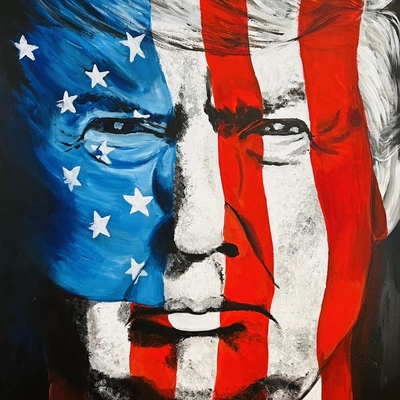Stay informed on the latest Truth Social posts from Donald Trump (@realDonaldTrump) without the doomscrolling. Consider it a public service for your mental health. (Why?)
- The speaker spoke with the Prime Minister of Cambodia about stopping the war with Thailand.
- The speaker is calling the Acting Prime Minister of Thailand to request a ceasefire and end the war.
- A war is currently raging between Cambodia and Thailand, causing many deaths.
- Trade deals with Cambodia and Thailand are conditional on the cessation of hostilities.
- The speaker has informed both countries that no trade deal will be made if they are fighting.
- The situation is complex, but similar to the successfully halted conflict between Pakistan and India.
The post describes a regional conflict and mentions trade deals with Cambodia and Thailand being conditional on peace. This suggests a localized impact on potential trade relations rather than a broad, immediate impact on major U.S. corporations or the overall S&P 500, as the mentioned countries are not primary drivers of global economic or corporate earnings for S&P 500 companies.
The post explicitly states there is a 'War...currently raging' between Cambodia and Thailand, leading to 'Many people are being killed.' The speaker's intervention aims to 'stop' and 'END' this conflict, indicating a pre-existing state of extreme conflict and severe humanitarian impact.
- Commodities: The post describes a regional conflict in Southeast Asia. This region is not a primary global hub for major commodity production or transit in a way that would immediately shock global markets based solely on this information. While any conflict carries some risk, this particular one, as described, does not point to direct supply disruptions of globally critical commodities. Short-Term Watchlist: Localized commodity prices; regional shipping rates. Medium-Term Focus: Broader inflation trends and global demand signals.
- Currencies (Forex): Regional currencies (e.g., Thai Baht, Cambodian Riel) could experience volatility due to conflict and diplomatic uncertainty. The US Dollar Index (DXY) might see a marginal safe-haven bid if broader global risk aversion rises, but the localized nature of the conflict as presented suggests a limited direct impact on major global currency pairs unless it escalates significantly. Short-Term Watchlist: THB/USD, KHR/USD. Medium-Term Focus: Global growth differentials and central bank policies.
- Global Equities: While a 'raging war' is serious, the conflict between Cambodia and Thailand, as described, is unlikely to have a direct, material impact on major global equity indices like the S&P 500, Nasdaq, STOXX 600, Nikkei 225, or Hang Seng, as these countries do not house a significant number of globally integrated corporations whose operations or earnings would be severely disrupted. The speaker's intervention aims to de-escalate, which could be seen as a positive, albeit localized, signal. Short-Term Watchlist: Futures open; specific regional market reactions. Medium-Term Focus: Macro data and global capital flows.
- Fixed Income (Bonds): A regional conflict, even a 'raging war,' typically does not cause a 'flight to safety' into major global fixed income assets like US 10Y or 2Y Treasuries unless it involves major economic powers or disrupts global trade routes significantly. The speaker's attempt to mediate would be seen as a de-escalatory measure, if successful. Short-Term Watchlist: UST 10Y yield levels; regional bond yields. Medium-Term Focus: Broader monetary policy and fiscal concerns.
- Volatility / Derivatives: The localized nature of the conflict and the ongoing diplomatic efforts to resolve it suggest a limited direct impact on global volatility measures like the VIX. While any conflict adds uncertainty, this particular scenario, as described, does not present an immediate systemic risk that would cause a major VIX spike or amplify gamma risk in global derivatives. Short-Term Watchlist: VIX levels; regional volatility indices. Medium-Term Focus: Global macro policy uncertainty and systemic tail risks.
- Crypto / Digital Assets: Bitcoin and other digital assets typically react to broader macro liquidity, global risk sentiment, and regulatory news rather than specific regional conflicts of this nature. The post does not introduce new information that would fundamentally alter their risk-on/risk-off dynamics or correlation to tech stocks. Short-Term Watchlist: BTC/USD price action; correlation to global equity markets. Medium-Term Focus: Regulatory news; stablecoin flows; macro liquidity backdrop.
- Cross-Asset Correlations and Systemic Risk: The post describes a regional conflict and an intervention, not a global economic or financial shock. Therefore, it is unlikely to trigger breakdowns in normal cross-asset correlations or signs of margin calls/liquidity stress on a global scale. Short-Term Watchlist: Gold/USD co-movement; broader market stress indicators. Medium-Term Focus: Shadow banking risk; central bank intervention capacity.
- Retail Sentiment / Market Psychology: The post is about high-level diplomatic efforts regarding a foreign conflict. It is not framed in a way that would directly incite retail speculation in specific assets like meme stocks or altcoins, nor does it contain language typically associated with such movements. Short-Term Watchlist: Social media trends regarding geopolitical events. Medium-Term Focus: Overall investor sentiment and risk appetite.

